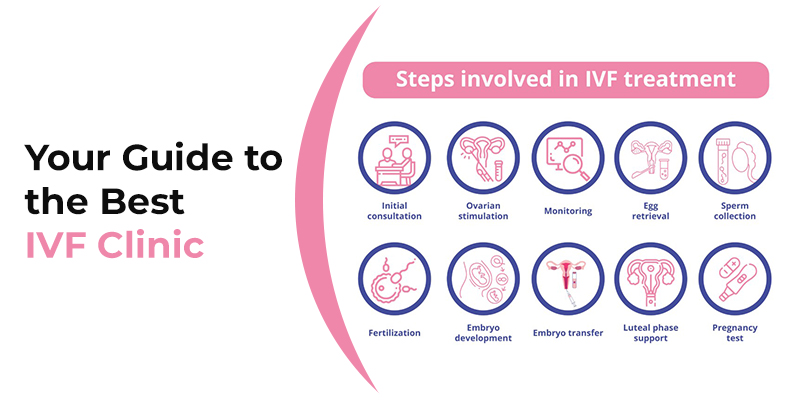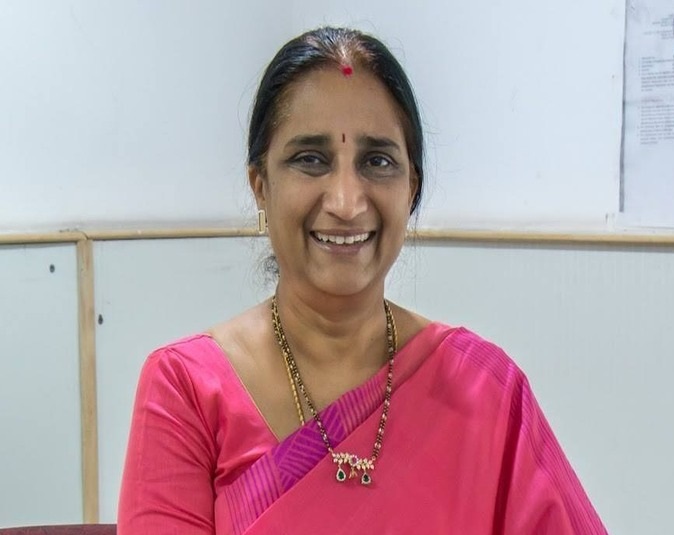Your guide to the best IVF clinic in Secunderabad
Infertility is a common problem nowadays, and it can be really tough for couples both mentally and physically. Some couples try a lot of medicines but still can’t get pregnant. That’s where assisted reproductive techniques (ART) come in as a big help. There are a few methods like In Vitro Fertilization (IVF), Intracytoplasmic Male gamates Injection (ICSI), and surrogacy. IVF has been around for a long time. The first IVF baby was born on born 25 July 1978 and since millions of babies have been born using this method. The first child born through IVF has even become a mother now. IVF is like a special treatment where the egg and male gamates are combined outside the body, and then the resulting embryo is put into the woman’s uterus. It has helped many couples with different fertility problems like issues with the fallopian tubes, male infertility, or when the reason for infertility is not clear. If you want to know more about this treatment you must seek help from the best IVF clinic in Secunderabad
ICSI is another technique that helps when a man has problems with his male gamates. In ICSI, a single male gamates is directly injected into an egg to help it fertilize. This method has been a great help for couples dealing with issues related to the quality or quantity of male gamates. Surrogacy is a bit more complicated emotionally, but it’s a choice for couples who can’t carry a pregnancy. In surrogacy, another woman carries and gives birth to the baby for the couple. Even though there are legal and ethical things to consider, surrogacy has become a way for many couples to become parents.
Best IVF Clinic Near Me Secunderabad
Going through infertility is not easy, but these methods at best IVF clinic near me Secunderabad give hope and new possibilities for many couples. Success stories and improvements in these methods show that even though becoming a parent might be hard, there are different ways to make it happen. These techniques give a renewed sense of hope for couples who dream of having a family.
Reasons for getting IVF at the best IVF clinic near me Secunderabad
In Vitro Fertilization (IVF) is a special medical method to help couples have a baby when they’re having trouble getting pregnant. There are a few reasons why some couples might choose to go for IVF:
- Trouble with Eggs or Male gamates: Sometimes, the woman may have trouble producing eggs or the man might have issues with the male gamates. IVF helps by combining the eggs and male gamates outside the body, increasing the chances of fertilization.
- Fallopian Tube Problems: The fallopian tubes are like tiny pathways where the egg and male gamates meet. If these tubes are blocked or not working well, the egg and male gamates can’t get together naturally. IVF can help by bringing them together in a laboratory dish.
- Unexplained Infertility: In some cases, doctors may not find a clear reason why a couple can’t conceive. IVF becomes a helpful option to bypass any unknown issues and increase the chances of pregnancy.
- Endometriosis: This is a condition where tissue that usually lines the inside of the uterus grows outside of it. IVF can be a solution for couples dealing with endometriosis, as it helps in achieving pregnancy without the hurdles caused by this condition.
- Low Male gamates Count: If a man doesn’t have enough healthy male gamates, or if the male gamates has trouble moving, IVF with ICSI (Intracytoplasmic Male gamates Injection) can be used. ICSI involves directly injecting a single male gamates into the egg to aid fertilization.
- Ovulation Issues: Sometimes, a woman might not ovulate (release eggs) regularly, making it harder to get pregnant naturally. IVF can help by carefully timing the process, and increasing the chances of fertilization and pregnancy.
- Genetic Disorders: If there’s a risk of passing on certain genetic disorders to the baby, doctors might use a technique called Preimplantation Genetic Testing (PGT) during IVF. This helps select embryos that don’t carry these genetic issues.
- Previous Pregnancy Issues: If a couple has had repeated miscarriages or failed fertility treatments, IVF can offer a more controlled environment for conception and early embryo development.
- Same-Sex Couples and Single Parents: IVF also allows same-sex couples and single individuals to have a biological child by using donor eggs or male gamates.
- Age-Related Infertility: As a woman gets older, her fertility decreases. IVF can be a viable option for older women who are struggling to get pregnant naturally.
Steps of IVF
In Vitro Fertilization (IVF) is a multi-step process that involves combining the egg and male gamates outside the body in a laboratory setting. Here are the detailed steps of the IVF process:
- Ovulation Stimulation:
– The first step involves stimulating the ovaries to produce multiple eggs. Normally, a woman produces one egg during her menstrual cycle, but in IVF, multiple eggs are desired to increase the chances of success.
– Fertility medications, often in the form of hormone injections, are administered to stimulate the ovaries. These medications help in controlling the timing of egg maturation and release.
- Egg Retrieval:
– When the eggs are mature, a minor surgical procedure called egg retrieval is performed. A thin needle is inserted through the vaginal wall into the ovaries to collect the eggs. This procedure is typically done under sedation to minimize discomfort.
- Male gamates Collection:
– On the same day as the egg retrieval, a male gamates sample is collected from the male partner or a male gamates donor.
- Fertilization:
– The collected eggs and male gamates are combined in a laboratory dish in a controlled environment. This step mimics the natural process of fertilization that occurs in the fallopian tubes.
– The fertilized eggs, now called embryos, are monitored for their development over the next few days.
- Culturing Embryos:
– The embryos are allowed to grow in a special incubator. During this time, the embryologist observes their development and selects the healthiest embryos for implantation.
- Preimplantation Genetic Testing (Optional):
– In some cases, if there’s a risk of genetic disorders, preimplantation genetic testing (PGT) may be performed. PGT allows for the screening of embryos for genetic abnormalities before they are implanted in the uterus.
- Embryo Transfer:
– Once the embryos are ready, one or more selected embryos are transferred into the woman’s uterus. This is a relatively simple procedure similar to a Pap smear and does not require anesthesia.
– The number of embryos transferred is usually decided based on various factors, including the woman’s age and health, as well as the quality of the embryos.
- Luteal Phase Support:
– After the embryo transfer, hormonal medications such as progesterone are given to support the lining of the uterus and increase the chances of successful implantation.
- Pregnancy Test:
– Approximately 10 to 14 days after the embryo transfer, a pregnancy test is conducted to determine if the procedure was successful.
- Pregnancy Monitoring:
– If the pregnancy test is positive, the woman undergoes regular check-ups to monitor the progress of the pregnancy. In some cases, more than one cycle of IVF may be needed to achieve a successful pregnancy.
Mistakes you should not make during IVF
Certain mistakes IVF process. Firstly, it’s essential not to spend all the time in bed; while rest is important, maintaining a moderate level of physical activity is beneficial. Striking a balance between optimism and realism is key, avoiding extremes in emotions regarding the outcome. Flexibility is also crucial, as sticking with only one plan may limit options. Rushing into the IVF process without adequate research and understanding is another common mistake; it’s important to take the time to make informed decisions. Additionally, waiting until one is older to pursue IVF may reduce the chances of success, emphasizing the importance of timely consideration and action. By steering clear of these mistakes, couples can navigate the IVF journey with greater awareness and increase their chances of a positive outcome in building their family.
Success rate
Several factors play a crucial role in determining the success of In Vitro Fertilization (IVF), making it essential to consider these aspects when undergoing the process for the first time. Age is a significant factor, with individuals below 35 having higher chances of success due to better egg quality and quantity. A history of a previous successful pregnancy also positively influences IVF outcomes. The quality of the embryo is a critical determinant, and embryos that are around 5 days old are considered optimal for IVF success. Timing is equally crucial, as implanting the embryo in the uterus at the right moment within the implantation window is vital to prevent IVF failure. By understanding and prioritizing these factors, individuals can enhance their chances of a successful IVF journey and fulfill their dream of starting a family.
Things you should be aware of before beginning IVF
Choosing to use IVF may be nerve-wracking as well as thrilling. A financial, emotional, physical, and mental readiness is essential for the potentially exhilarating journey that is infertility treatment. Although every couple experiences and approaches their treatment in a different way, there are ten things you should be aware of before beginning IVF:
- First, get your body ready for IVF.
Even with IVF, most individuals are unaware of how crucial good overall health is to becoming pregnant. Your body has to be in excellent condition before it agrees to support life for nine months. Your hormonal balance is impacted by your body weight and fat percentage, which in turn impacts your fertility and capacity to conceive. A sedentary lifestyle and bad habits may be very harmful to male gamates, even in males, which can make conception more difficult. The good news is that male gamates only have a 74-day life cycle, so you can easily increase male gamates count and quality by implementing a few easy lifestyle adjustments.
- Get your body ready for IVF.
Stress, obesity, drug and alcohol abuse, smoking, and an excessively sedentary lifestyle are all detrimental to IVF outcomes, and if you don’t address these issues before beginning your cycle, you will be decreasing your chances of success. You must prioritize a diet high in nutrients and well-balanced. In addition to assisting you in reducing the negative effects of the drugs, eating a high-fiber diet rich in leafy greens, fresh fruits and vegetables, grains, and proteins can also help you get ready for a healthy pregnancy.
For best outcomes, you may begin your IVF diet two to three months before the procedure.
- How can stress levels impact IVF cycles?
Receiving treatment for the first time may be very confusing, frightening, and perplexing.
The therapy may cause anxiety even after it has begun due to the mounting expectation of results. This research found that women were more likely to have a successful IVF pregnancy if they were less stressed the day before the egg retrieval. The best approach to deal with stress is to get more informed, locate the best IVF facility, and ask your doctor all the questions you have.
Being unaware of the specifics of the IVF technique may lead to a great deal of worry at every turn, but knowing what to expect can make you feel more knowledgeable and in control of the process. You’ll feel much more at ease and peaceful during the cycles as a result of having a feeling of control.
- Don’t rely only on IVF success rates
A mistake that a lot of couples make is choosing a clinic just based on their success statistics. IVF success rates are easily manipulated, making them unreliable. A clinic with one monthly caseload may have a 100% success rate or 0% success rate. Thus, you should use caution while assessing your prospects of success. As you look at success rates, be sure you understand what that data is showing. Live births—are they being counted? Or does the proportion just represent tests that are positive for pregnancy? Does this include the fact that the conception was healthy? Or was it a cycle of donor eggs?
The success statistics are very deceptive, and you should carefully examine the data to determine the likelihood of success in situations similar to yours.
Speak with your physician about the best course of action and the likelihood of success for your particular circumstance.
- Ask directly about prices; don’t choose the lowest option.
You will be quoted varying prices by different clinics. Some may offer you an all-inclusive package, while others may need payment on a bill-by-bill basis when your therapy is administered. Make sure there are no hidden fees and that you get all the information beforehand. Request the price of all necessary diagnostic tests, blood work, scans, ovarian stimulation, oocyte harvesting, semen processing, IVF lab charge, and embryo transfer. Get the price for any further services you are considering, such as male gamates sorting, PGS/PGD, and embryo freezing, if necessary.
The services you need will depend on your unique circumstances, so the fees may not be set, but the clinic should be able to give you an approximate range.
- You’ll need persistence and time.
IVF is a lengthy, intrusive, and labor-intensive process. It cannot be avoided. Initial treatment planning, stimulation monitoring, egg retrieval, semen analysis, and other procedures will take up a lot of your sessions.
A typical cycle may take three to four weeks, however the exact duration may depend on your unique situation. The course of therapy is mostly determined by your body’s reaction. Additionally, women under 35 have around a 50% chance of successfully conceiving with IVF, so although optimism is a positive thing, you also need to be grounded. If your IVF cycle doesn’t work out the first time, don’t give up too quickly. More than 50% of people need many cycles to conceive.
- It could cause you pain or discomfort.
Although injectable medications are not difficult to give, there is a frequent belief that they are very unpleasant. In actuality, side symptoms such as cramps, bloating, breast tenderness, mood swings, headaches, and stomach discomfort are typical with injectable drugs. These drugs aid in the process of getting your ovaries ready for ovulation, which makes them enlarge. This may give some ladies excruciating stomach ache. In order to prepare your uterine lining for accepting an embryo, you can also need progesterone injections. These are injected into a muscle, which might hurt and bruise the area.
- Talk about embryo transfer
Even though it will just be the last phase of your cycle, this is important to talk about before you begin IVF. Even in cases when transferring more than two embryos is permitted, most physicians will not choose to do so. Many couples seek twins, but if your clinic recommends against multiple pregnancies, you should heed their advice since they may be risky. Only after evaluating your health and the quality of the embryos can the doctor choose how many embryos to transfer.
Day-3 or day-5 (blastocyst) transfer is another option to think about; if your embryos are healthy enough to develop to that level, most reputable clinics would choose the latter.
Now, a lot of professionals are supporting frozen embryo transfer over fresh embryo transfer; nevertheless, additional data analysis is required to make a firm decision.
- Various forms of medical interventions
Is doing IVF the only option available to you? Will the physician be using the ICSI method? Does it come with an additional cost? Consider IUI before IVF if you’re young, have no serious reproductive issues, and your tubes are open. IUI is less intrusive, much less expensive, and frequently involves no medication use. Other IVF treatment options include less intense pharmacological stimulation with cycles that may be integrated, rather than suppressed, with your normal menstrual cycles. One therapy option is natural insemination of embryos (IVF), which is drug-free and considerably easier on the body overall but has much lower success rates since only one egg can be harvested.
Treatments such as light IVF and natural modified IVF use fewer medication days and lower doses, which have a less severe effect on the body; nevertheless, this gentler method is limited to certain people, and a qualified physician will be able to advise you after analyzing your records.
PGS and other cutting-edge technologies might increase the success rate of IVF, particularly for those in their late 30s or early 40s.
- Locate your network of support
Even though over 20 percent of couples experience infertility, the condition is still stigmatized, and many individuals choose to conceal their diagnosis. Imagine the stress of having to go through all of those exams and procedures on top of having to keep everything private.
In addition to helping you share the burden, talking to friends and family helps ease the process since, as you may be surprised, many of them have personally dealt with similar issues and can be a great source of support.
Final words
While IVF greatly enhances the likelihood of becoming pregnant, it does not give any promises, and infertility may be difficult. The happiness of parenting may be obtained via fertility treatments, but the risks to your bodily and mental well-being may also exist. Making the move to a healthy lifestyle, consulting with knowledgeable individuals, identifying the most appropriate course of treatment, and being well-informed about everything involved are all part of getting ready for in vitro fertilization (IVF).


